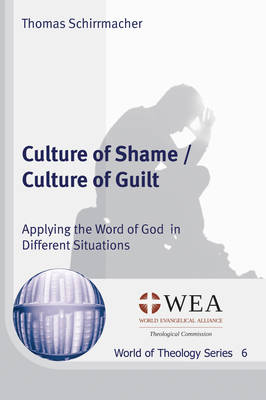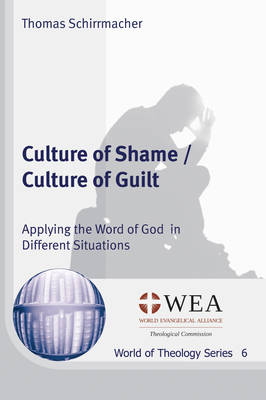
Je cadeautjes zeker op tijd in huis hebben voor de feestdagen? Kom langs in onze winkels en vind het perfecte geschenk!
- Afhalen na 1 uur in een winkel met voorraad
- Gratis thuislevering in België vanaf € 30
- Ruim aanbod met 7 miljoen producten
Je cadeautjes zeker op tijd in huis hebben voor de feestdagen? Kom langs in onze winkels en vind het perfecte geschenk!
- Afhalen na 1 uur in een winkel met voorraad
- Gratis thuislevering in België vanaf € 30
- Ruim aanbod met 7 miljoen producten
Zoeken
Omschrijving
Until now theology has hardly paid sufficient attention to the difference between cultures that are primarily guilt-oriented and those that are primarily shame-oriented. Thomas Schirrmacher's work is noteworthy for the way he informs the reader not only as it relates to missionary theology and activity. It goes on to inform the reader on this important topic as it relates to educational theory, ethics, and counseling from the points of view of both cultural anthropological and theology. The work demonstrates that a total contrast between shame and guilt orientations does not correspond to the Biblical message, nor is it derived from the tradition of the Occident and from churches of Reformation origin. Rather, shame was already considered in and integrated into these perspectives. The work is particularly challenging insofar as it calls for closer attention to be paid to the significance of the undisputed differences between shame-oriented and guilt-oriented cultures for the Christian doctrine of sin and also of reconciliation with God through Christ. Prof. Dr. Ulrich Eibach, Professor for Systematic Theology, Bonn, Germany Prof. Dr. theol. Dr. phil. Thomas Schirrmacher, PhD, ThD, DD, is professor of the sociology of religion at the State University of the West in Timisoara (Romania), Distinguished Professor of Global Ethics and International Development at William Carey University in Shillong (Meghalaya, India), as well as president and professor of ethics at Martin Bucer European Theological Seminary and Research Institutes with branches in Bonn, Berlin, Zurich, Innsbruck, Prague, Istanbul and Sao Paolo. Schirrmacher has held guest professorships and has given special lectures at universities on all continents. Schirrmacher is chair of the Theological Commission of the World Evangelical Alliance (WEA), director of the International Institute for Religious Freedom (Bonn, Cape Town, Colombo) and Ambassador for Human Rights of WEA; the WEA represents churches with 600 million members altogether. He also is a member of the board of the International Society for Human Rights. Schirrmacher regularly testifies in the German parliament and other parliaments in Europe, as well as in the EU in Brussels, the OSCE in Vienna and other international bodies. His has written 102 books; three of his newest books are Fundamentalism, Racism, and Human Trafficking. He has earned four doctorates, in missiology and ecumenical theology, in cultural anthropology, in ethics, and in sociology of religion, and received two honorary doctorates from the USA and India.
Specificaties
Betrokkenen
- Auteur(s):
- Uitgeverij:
Inhoud
- Aantal bladzijden:
- 94
- Taal:
- Engels
- Reeks:
- Reeksnummer:
- nr. 6
Eigenschappen
- Productcode (EAN):
- 9781532655753
- Verschijningsdatum:
- 10/05/2018
- Uitvoering:
- Paperback
- Formaat:
- Trade paperback (VS)
- Afmetingen:
- 147 mm x 224 mm
- Gewicht:
- 158 g

Alleen bij Standaard Boekhandel
+ 44 punten op je klantenkaart van Standaard Boekhandel
Beoordelingen
We publiceren alleen reviews die voldoen aan de voorwaarden voor reviews. Bekijk onze voorwaarden voor reviews.









